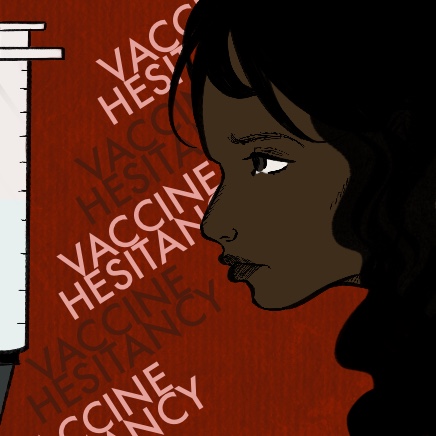In a Q&A conducted by the University of Waterloo, researchers said there is no evidence that side-effects from COVID-19 vaccines are different for the Black community as compared to other populations.
The COVID-19 pandemic has affected minorities such as the Black and Native American individuals at an increased rate. Reasons attributing to this disparity include racism and historical segregation, such as exploitative medical research, according to an article from Nature.
As discussed in the Q&A, Black and Indigenous communities have been used to test vaccines unethically in the past. One example among many is the experimentation that occurred without informed consent in the Tuskegee syphilis studies, where doctors withheld treatment from hundreds of Black men to “observe the natural history of untreated syphilis.”
Partly because of this, the Black community also experiences higher vaccine hesitancy. They also have a lack of confidence in the vaccines’ safety and have concerns regarding its risks and side effects.
Microbiology professor Trevor Charles, pharmacy professor Kelly Grindrod and health systems researcher Moses Tetui answered questions regarding vaccine-related fears.
One of the questions they were asked was if COVID-19 vaccine side effects are the same for Black individuals as compared to non-Black individuals.
“There is no evidence that the side-effects from COVID-19 vaccines are different for any ethnic or racialized group,” the experts said during the Q&A. They outlined common side effects such as “a sore arm, tiredness and headaches” which are signs that the immune system is learning how to recognize the SARS-CoV-2 virus — the one that causes COVID-19.
The experts were also asked if the vaccines are developed with considerations given to their effects on Black individuals, as compared to individuals from other races.
“Around 10 per cent of the Pfizer and Moderna trial populations identified as Black. The studies demonstrated that there were no differences in efficacy or safety in any racialized or ethnic group,” the experts said during the Q&A.
They added that there is no known evidence that suggests effects of the vaccines differ based on racial differences.
They were asked if the wait-and-see approach which is adopted by Black individuals before receiving their first dose puts them at a greater risk.
“When some members of the Black community decide to ‘wait and see’, it can further increase the risk of COVID-19 within the community,” said the experts. This is connected to the issue of systemic racism, where Black communities are more likely to experience crowded housing conditions or work in higher-risk environments.
They also noted that the wait-and-see approach could have a similar risk for any racial or ethnic group depending on their risk of exposure.
“A better approach would be to discuss those concerns with a trusted health care provider or community leader,” the experts said, as individuals often use the wait-and-see approach because they have questions or concerns about the vaccines.
Emelia Assigbey, an undergraduate student in the Faculty of Health, spoke about how the inclusion of Black participants in the trials shows an effort to make sure that there is some assurance amongst the community that the vaccines are safe.
“I also think that because a Black immunologist was involved in the development of the Moderna vaccine it helps to add a perspective that already has insight into the Black community and our experience with vaccines,” Assigbey said.
The Moderna vaccine was co-developed by Dr. Kizzmekia Corbett, a Black immunologist at the U.S. National Institutes of Health and one of many Black scientists involved in vaccine research.
“I could never sleep at night if I developed anything, if any product of my science came out, and it did not equally benefit the people that look like me. Period,” said Corbett in the Nature article.
In the article, Corbett specified additional reasons as to why Black individuals worry about the COVID-19 vaccines. These include the speed of vaccine development, long-term safety and concerns on social media. She also emphasized the importance of communicating science to individuals who are non-scientists and informing them about vaccine development.
“I can’t even blame anyone for being sceptical about this, because they don’t have any idea what went into it,” Corbett said.
She also mentioned that the general public has been left on the outside of vaccine development for a long time.
From a student perspective, Assigbey stated her agreement on how informing people from minority groups plays a large role in building trust and confidence towards our healthcare sector.
“It is also important to address the disparities present in the healthcare system that Black people face,” Assigbey said, highlighting the need to create and implement solutions accordingly.































